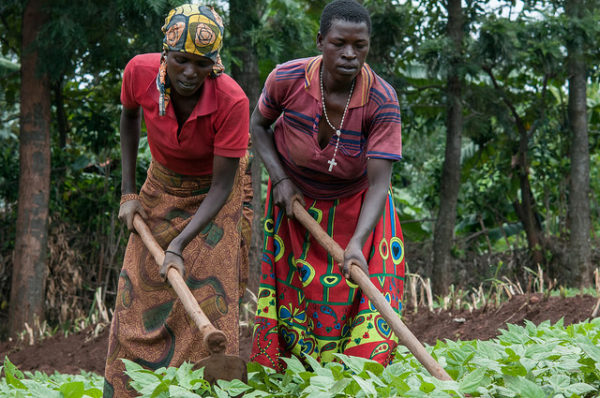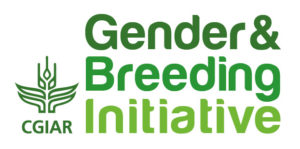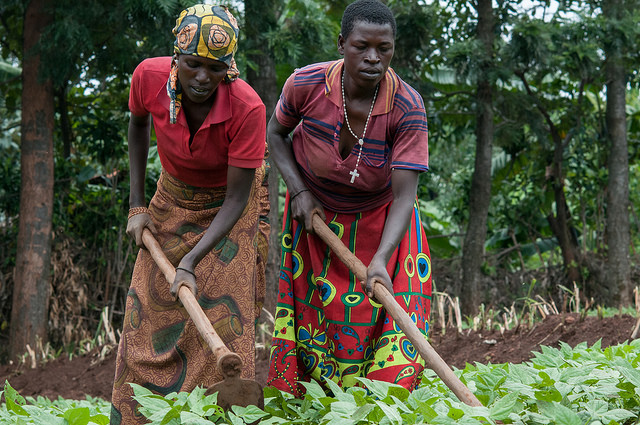The CGIAR Gender and Breeding Initiative brings together plant and animal breeders and social scientists to develop a strategy for gender-responsive breeding with supporting methods, tools and practices.
For plant and animal breeders to ensure that they meet the needs of users’, they need to understand the priorities that women and men assign to genetically determined traits – such as color, flavor, size, shape and more.

Improved crop varieties need to meet the needs and preferences of both men and women. Photo: Georgina Smith/CIAT
Many CGIAR breeding programs understand that if they overlook traits important to women, this can aggravate household food insecurity and poverty. But breeding programs still don’t have enough practical methods and tools to help them decide how to be more gender responsive and consider gender differences in breeding schemes.
Tackling this knowledge gap is urgent if CGIAR Research Programs (CRPs), Centers and partners are to achieve the targets for gender equality promised in the CGIAR Strategy and Results Framework.
With this in mind, a workshop on Gender, Breeding and Genomics was held last year with support from the CGIAR Gender Network and Gender Action Plan (the Network was coordinated by the CGIAR System Management Office until December 2016, and has now evolved into the CGIAR Collaborative Platform for Gender Research led by the CGIAR Research Program on Policies, Institutes and Markets). The workshop concluded that the knowledge and experience exist to construct, in a short time, a clear strategy for gender-responsive breeding with supporting methods, tools and practices. However, this knowledge is scattered in different sectors and disciplines and needs to be connected by a multidisciplinary team effort.
 The CGIAR Gender and Breeding Initiative is being launched to pull together this strategy by the group of breeders and social scientists who participated in the 2016 workshop, with coordination provided by the CGIAR Research Program on Roots, Tubers and Bananas and the International Potato Center.
The CGIAR Gender and Breeding Initiative is being launched to pull together this strategy by the group of breeders and social scientists who participated in the 2016 workshop, with coordination provided by the CGIAR Research Program on Roots, Tubers and Bananas and the International Potato Center.
The Initiative is designed to share its knowledge across all CGIAR and partner breeding programs in active association with centers, CRPs and the new CGIAR Platforms on Gender, Big Data and Excellence in Breeding.
“The Initiative will increase the development impact of breeding by recommending practical ways to improve gender-responsiveness, while also developing evidence-based methods and tools for gender responsive targeting, implementation of breeding activities and linkage with variety dissemination,” explains Graham Thiele, RTB Program Director.
“Supporting a community of practice to actively share and develop methods and tools to help breeders be more gender responsive in their work is also a major priority of the Initiative,” he adds.
The Initiative will host an Innovation Workshop on Gender Responsive Breeding from 5-7 October 2017 in Kenya, Nairobi, bringing together many of the original participants from the previous workshop. A set of input papers are being commissioned around gender and social targeting and setting priorities in breeding which will form the framework of the upcoming workshop.
A series of webinars will also be held by the Initiative in the lead up to the workshop featuring presentations and discussions lead by postdoctoral fellows working on gender and breeding within CGIAR.
A website for the Initiative is now live: www.rtb.cgiar.org/gender-breeding-initiative/
